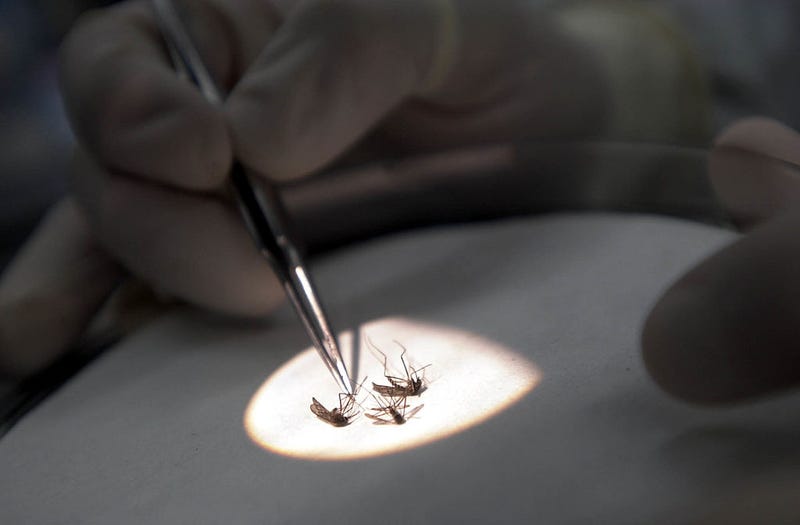
NEW YORK (1010 WINS/WCBS 880) — West Nile virus has been detected in two people and a record number of mosquitos in New York City, the city's Department of Health said Tuesday.
listen to WCBS 880
Two human cases have been reported, one each in Brooklyn and Queens, according to the department. Meanwhile, in the United States, a total of 54 cases with four deaths have been reported this year.
Mosquitos typically infected with West Nile Virus are typically present in the city from July through October, with peak activity during August and September. Officials said it could spread the virus with a bite.
The department said mosquito and West Nile virus activity is "rising," with a total of 1,068 positive mosquito pools across the five boroughs — the highest number ever recorded — compared to 779 positive pools detected at this time last year.
Health Commissioner Dr. Ashwin Vasan said in a statement that while the city is in the height of virus season, there are things people can do to decrease their risk of being bitten.
"Use an EPA registered insect repellent, wear long sleeves and pants, especially when outside at dusk and dawn when the types of mosquitoes that transmit WNV are most active," Vasan said. "In addition, you can stop mosquitoes from laying eggs in the water by emptying outdoor containers that hold water or calling 311 if you see standing water that you cannot empty. Help keep you and your loved ones safe with these actions during WNV season."
Most people infected with the West Nile virus have no symptoms at all or develop fever and other symptoms including headache, fever, muscle aches and extreme fatigue.
While the majority of patients infected with the virus will go on to fully recover from their illness, some continue to have problems months after infection.
Some people, especially those 60 years and older or with a weakened immune system, can develop a serious and potentially fatal illness of the brain and spinal cord called West Nile neuroinvasive disease leading to changes in mental status and muscle weakness requiring hospitalization.
If a person has symptoms of the virus, they should contact their health care provider.


